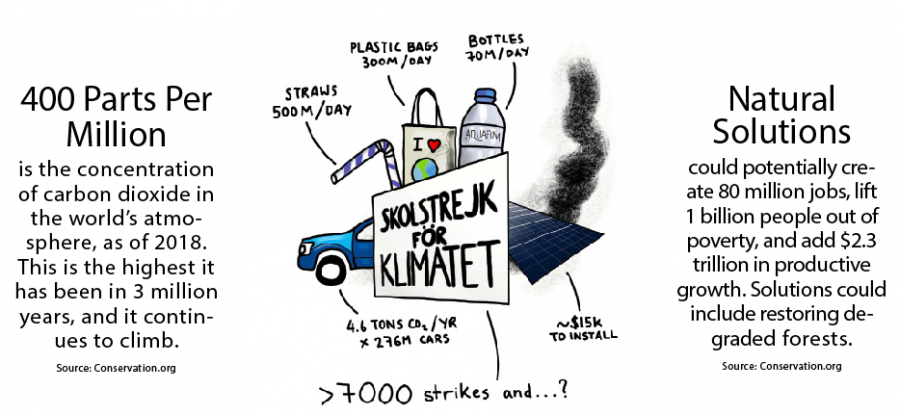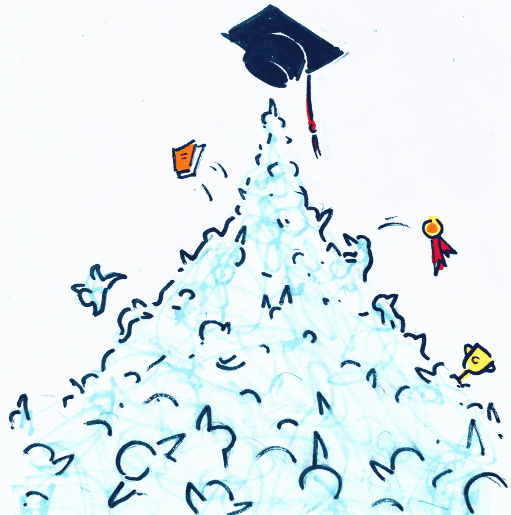Greta: A Driving Force in the Fight for Climate Change
Finding someone who has not heard of Greta Thunberg, watched the viral “how dare you” video, or seen a picture of her glaring at President Trump would be difficult. The 17-year-old girl from Sweden was nominated for Time Magazine’s person of the year as a youth activist for climate change issues. However, some questioned her nomination, saying that her contributions have not been substantial enough to warrant it. Indeed, in comparison with other nominees, like Donald Trump and Mark Zuckerberg, Thunberg’s credentials are nearly negligible on paper. What many fail to consider, however, is her unique role in addressing the most dire needs of climate change by shifting the focus of public discourse and as an inspirational figure for countless marginalized individuals in society.
One major source of criticism spirals from her lack of formal accomplishments. Given her limited access to economic and social resources, Greta’s success at sparking an international school strike movement and galvanizing students across the globe demonstrates her importance. Her contributions to this issue extend beyond explicit and measurable actions. While many critics claim other contributors like researchers and scientists are worthier of celebration, most environmental advocates lack not research, but global recognition.
Many developing countries struggle to balance the need for economic development and the global agenda of environmental protection, and ultimately prioritize the more immediate benefits of industrialization. Without the cooperation of others, many developed countries have proven unwilling to take responsibility for their own contributions to the problem.
With an overwhelming narrative discrediting the presence of climate change coming from influential figures like the United States’ president, the general lack of consensus on an environmental agenda hinders action in response to this urgent issue.
Thunberg serves as a figurehead of the counternarrative. Like any movement, the climate change movement needed a unifying individual and spokesperson for its mandates. Her successes in raising awareness and bringing public attention to this issue is arguably a more significant accomplishment than other areas like research, which would only collaterally benefit from heightened public concern. In democracies, bringing an issue onto people’s radar translates to increased recognition among politicians, who must respond to the people and make policies that appeal to their constituents. Thunberg’s greatest impact lies in the publicity she has brought to this movement, a fundamental link preceding further progress.
Moreover, Thunberg’s recognition by Time holds inspirational value. As a female youth with a neurological difference (Thunberg is on the autism spectrum), she shows society an example of one real life from a highly marginalized and misunderstood group. Indeed, her award as a Person of the Year alongside the many successful individuals and organizations with vast economic and social resources sends an important message – that an impact worthy of substantial recognition can be made by a common person. People should not be oblivious to pressing global challenges because they struggle to seek similarities between themselves and the celebrated leaders of the world.
At the end of the day, the valves that the “person of the year” award endorses should not solely include a measurement of quantitative or statistical impact. Sure, a billionaire could donate a huge sum to waste-disposal research. That may appear to be more impactful than inspiring a bunch of teenagers to go on a school strike in the name of fighting climate change, but the inspirational impact of Thunberg as a spearhead is irreplaceable.






